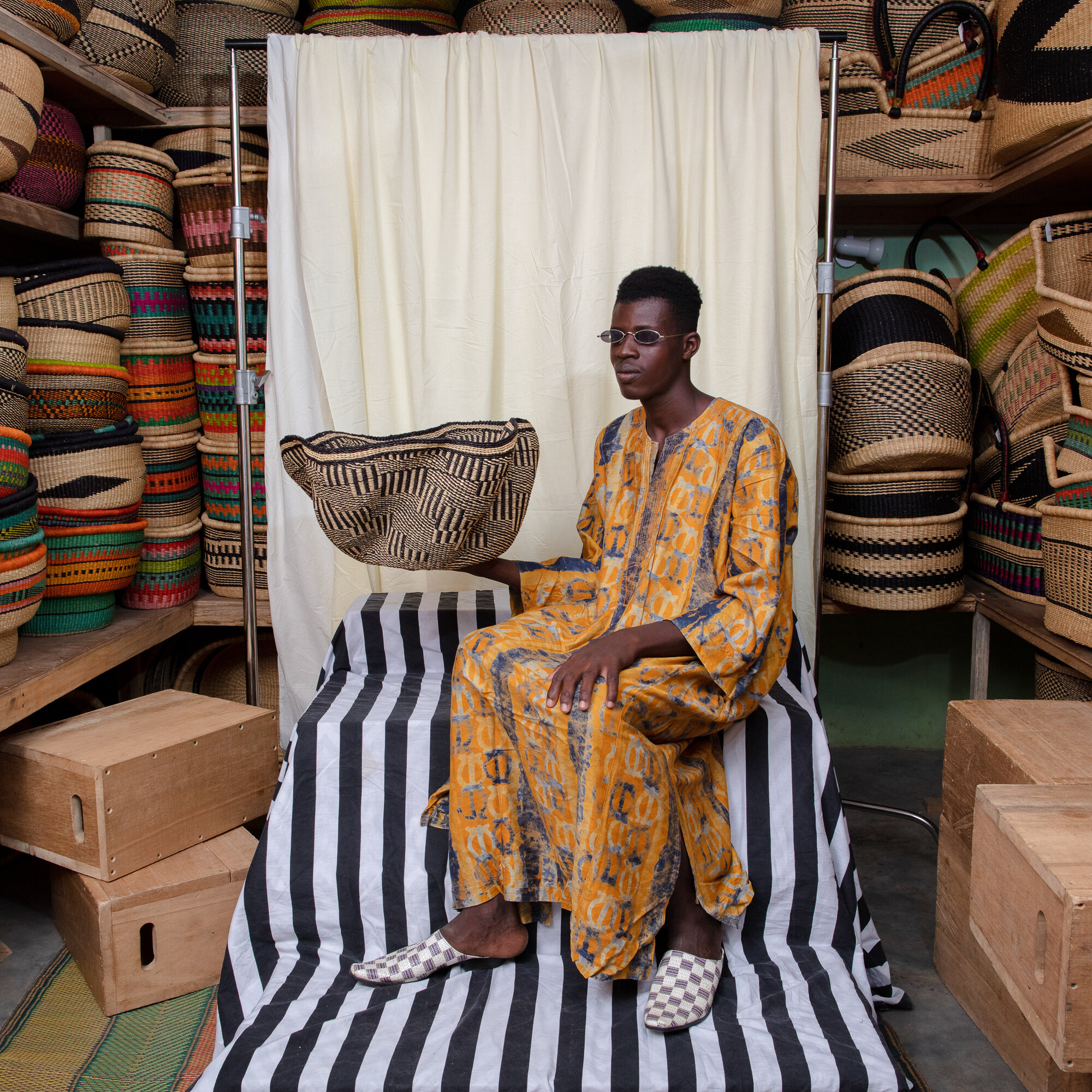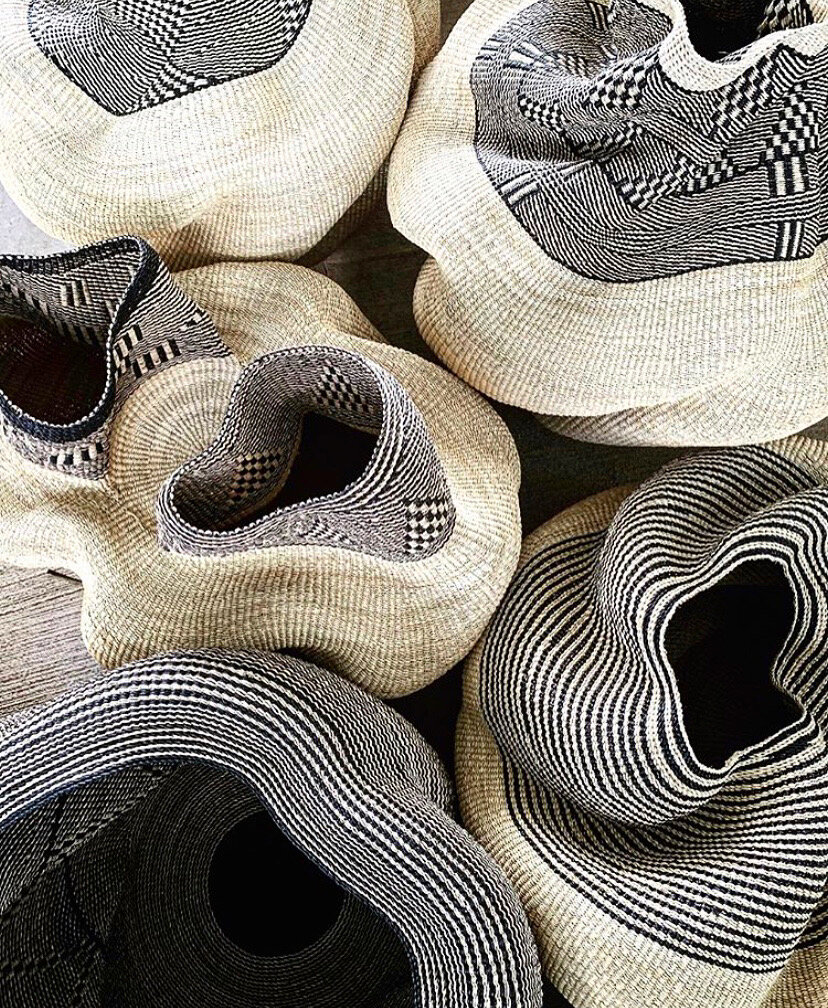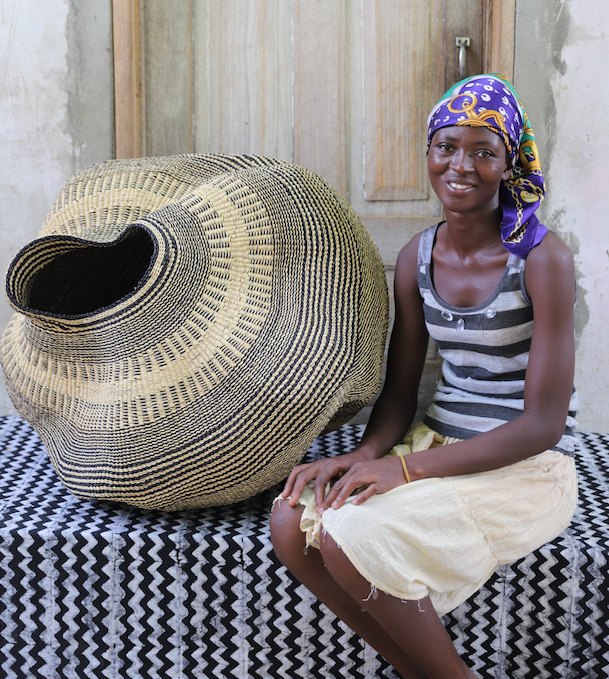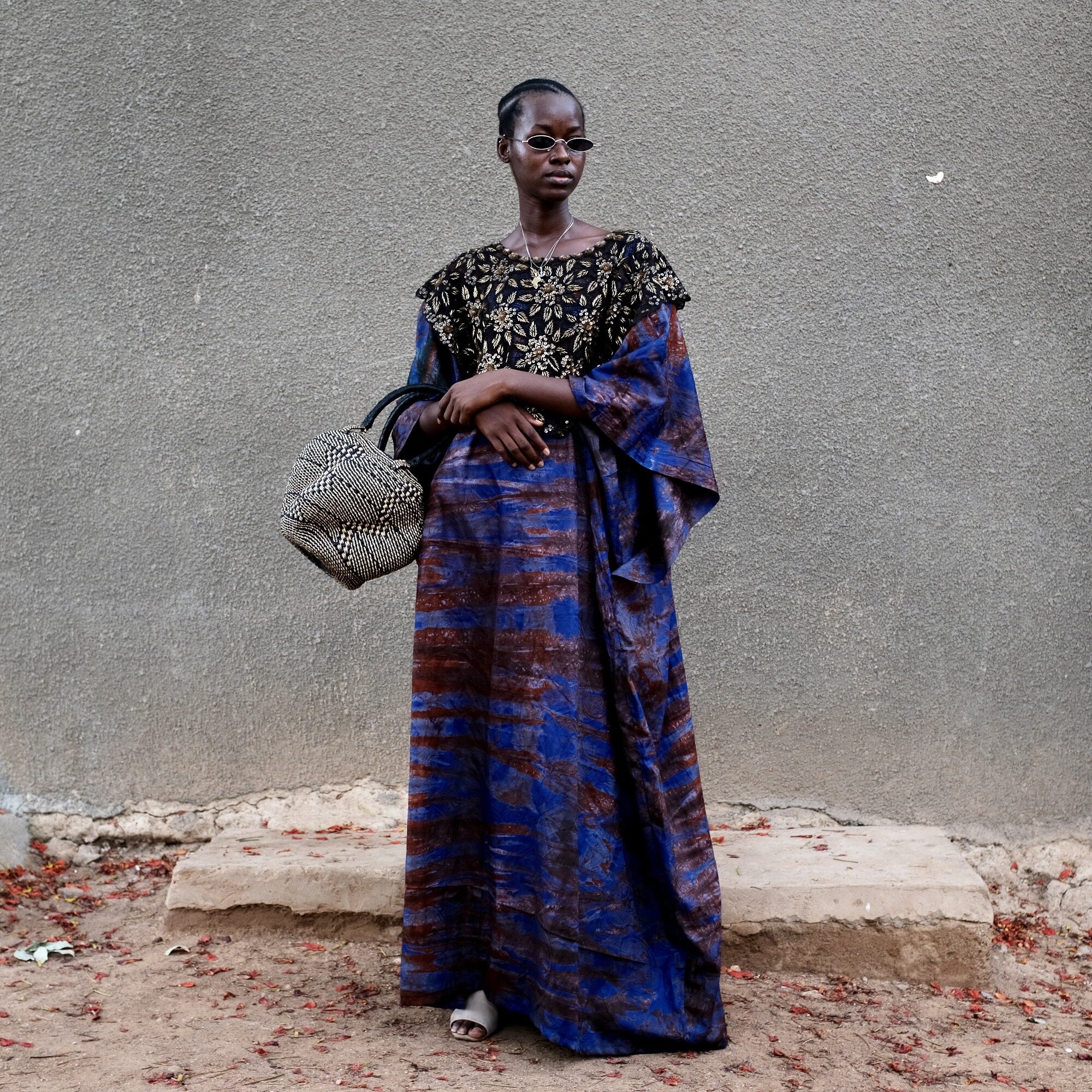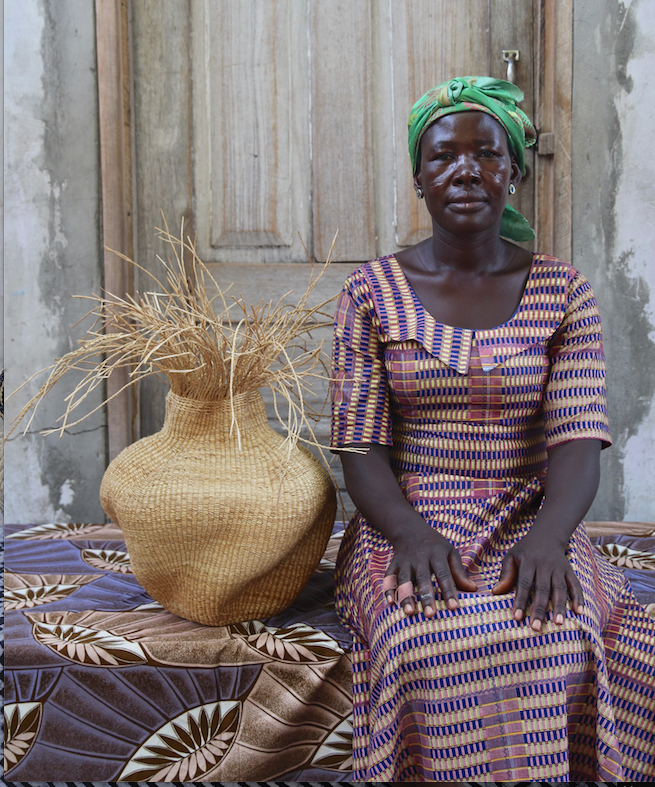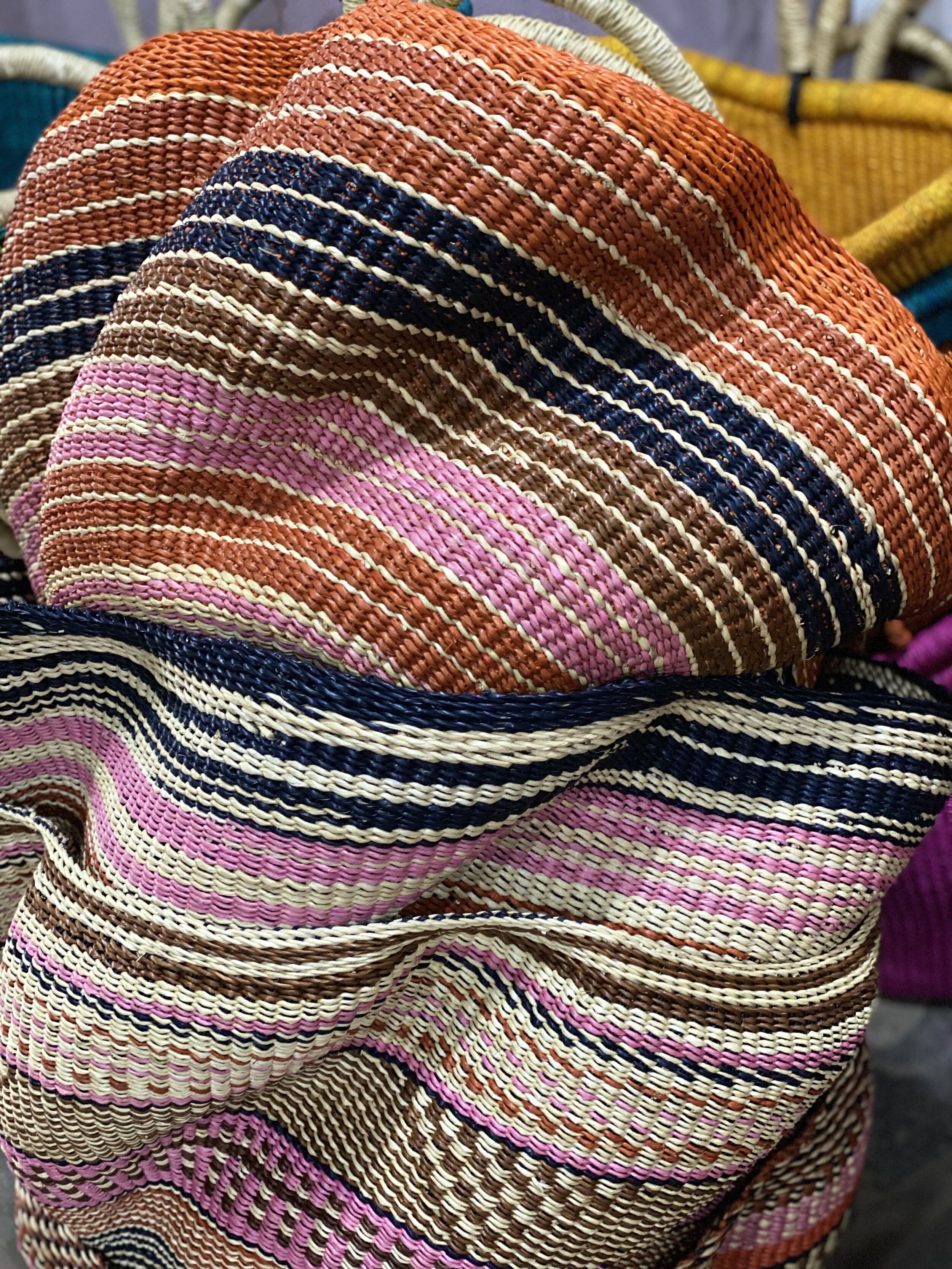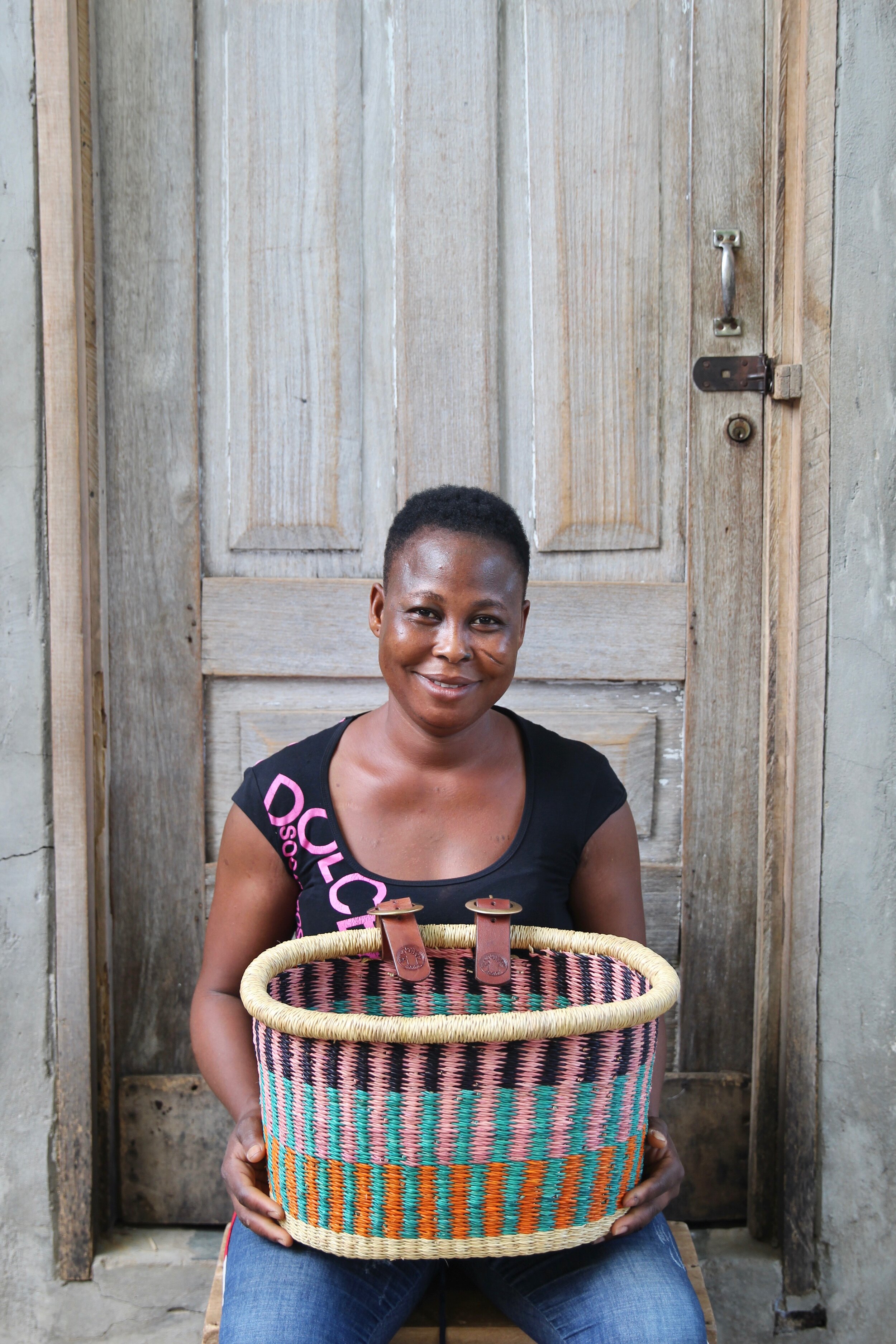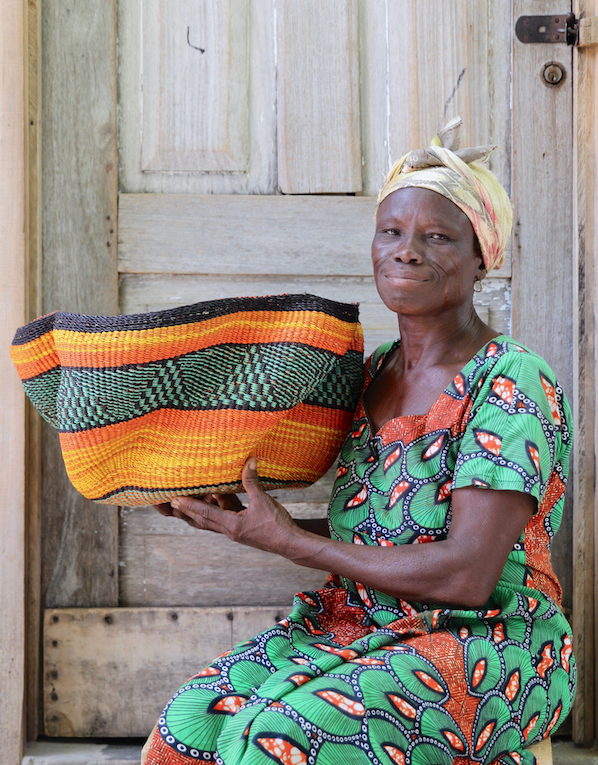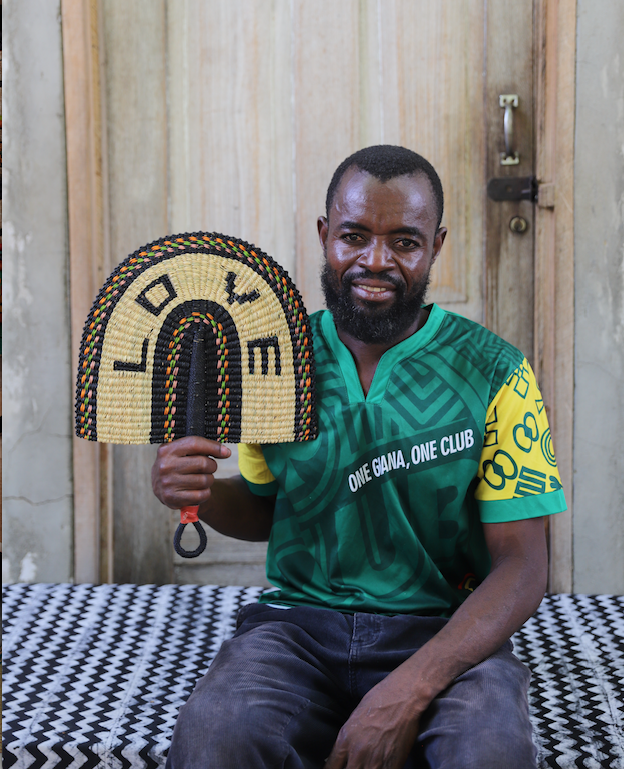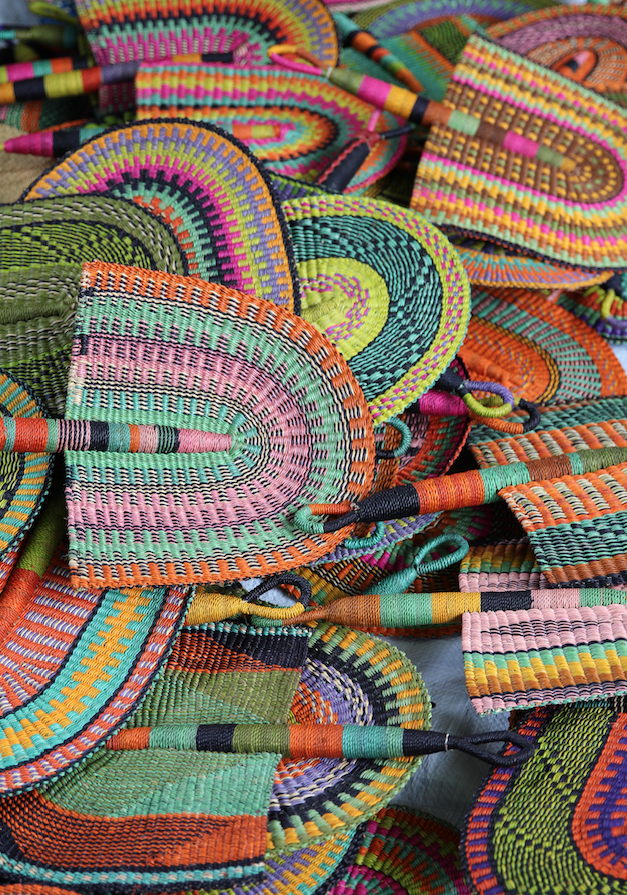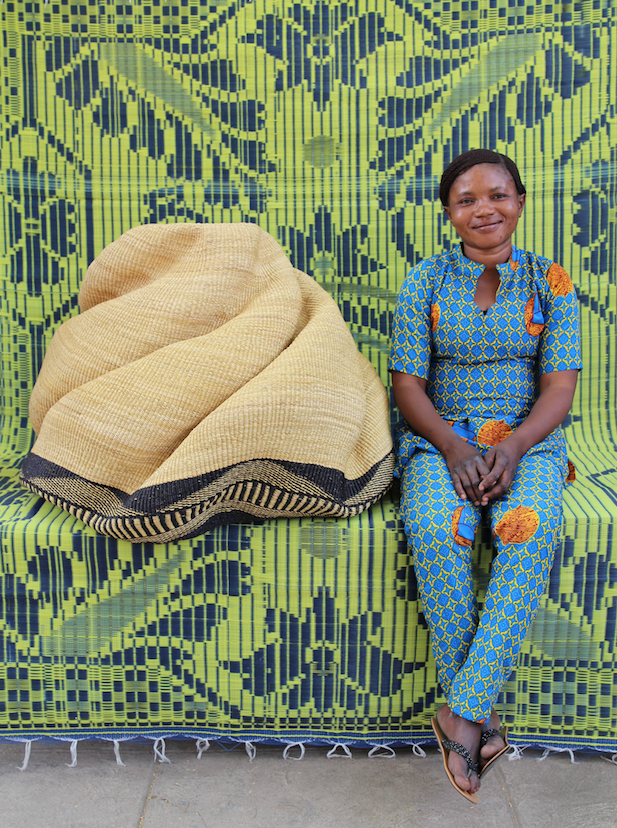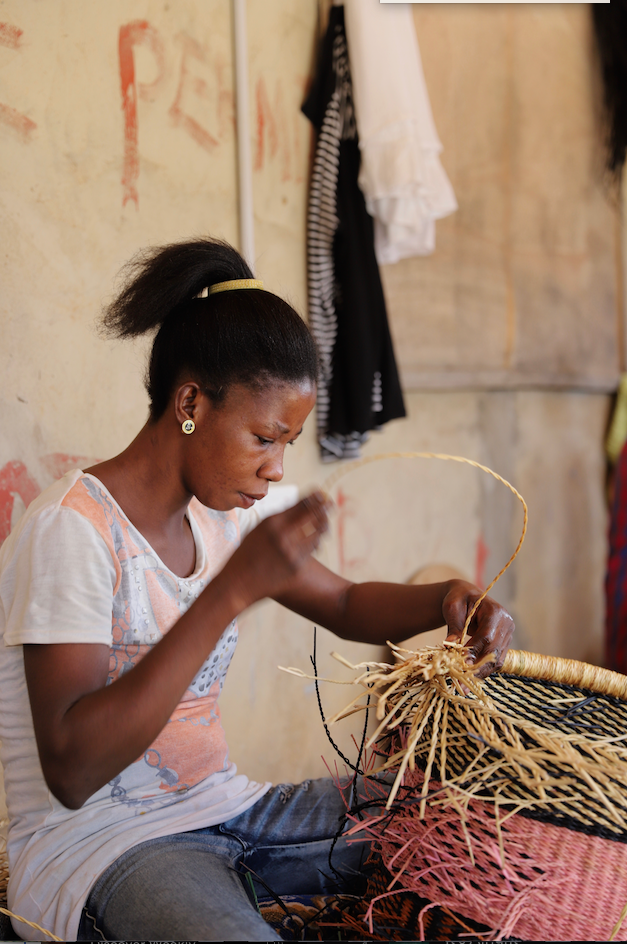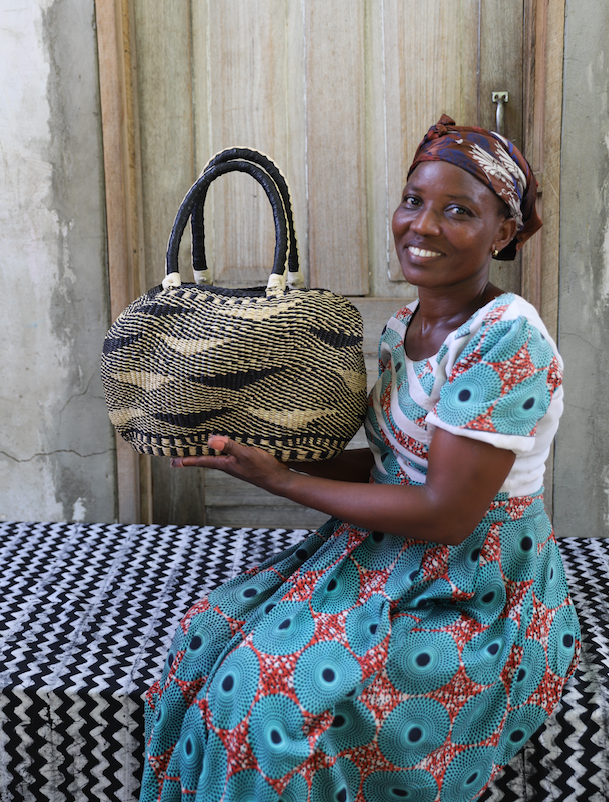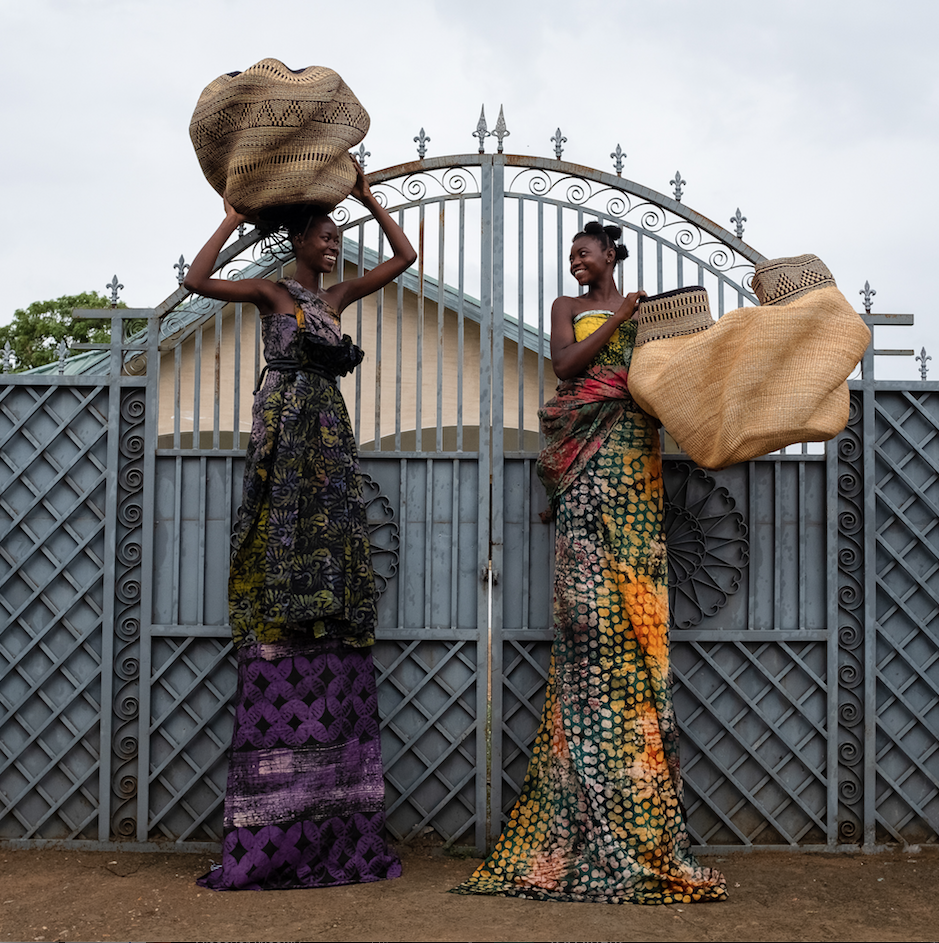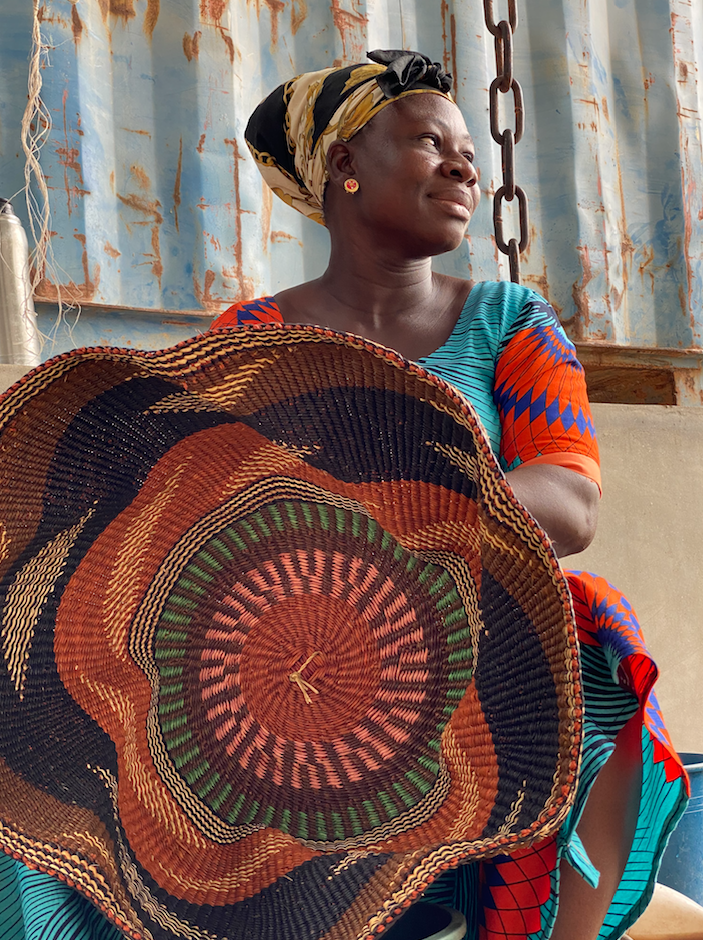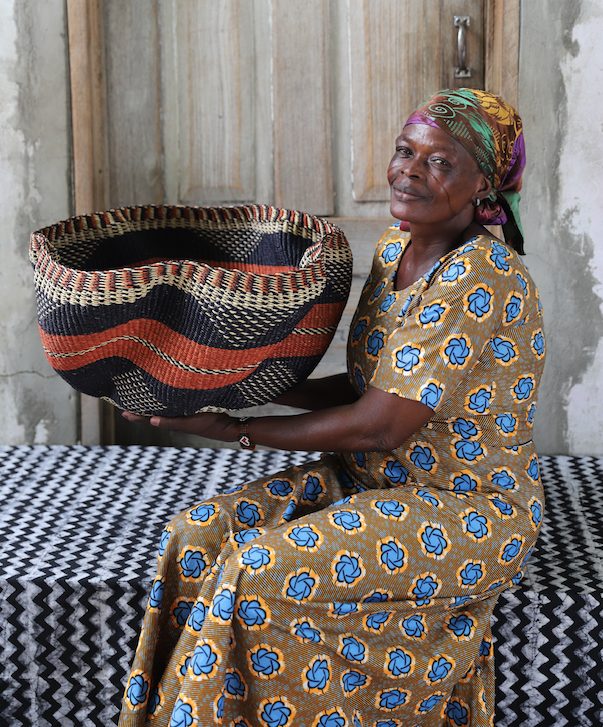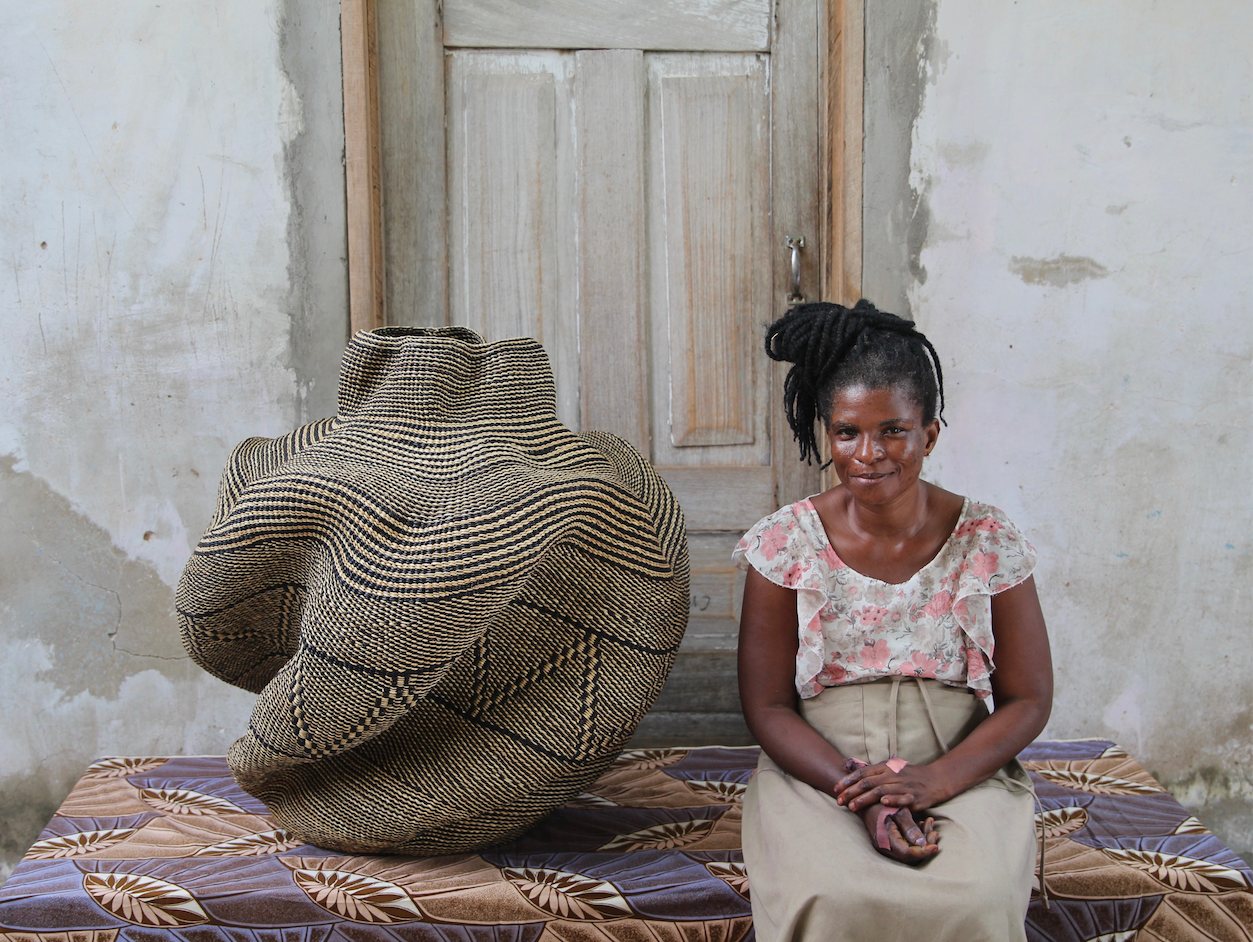SLOW MADE in Bolgatanga, Ghana
STYLE MASTERS
SLOW made IN Bolgatanga, Ghana | artisan weavers Gurunsi people | partnered with Baba Tree Basket Co. | photography COurtesy Baba Tree Basket Co.
interview with Gregory ‘Ayinedollah’ MacCarthy (Founder) & Bettina McILwraith (STylist & Communications)
BABA TREE BASKET CO. have been preserving the basket-weaving culture of the Gurunsi people in Bolgatanga in ghana for over 15 years, and remain committed to creating job sustainability with fair and meaningful work opportunities for the community.
they work closely with over 250 artisans, each trained by elders with craftsmanship skills handled with honour over generations.
we love these baskets and easily rank them into our top ten ‘slow made wonders of the world*’.

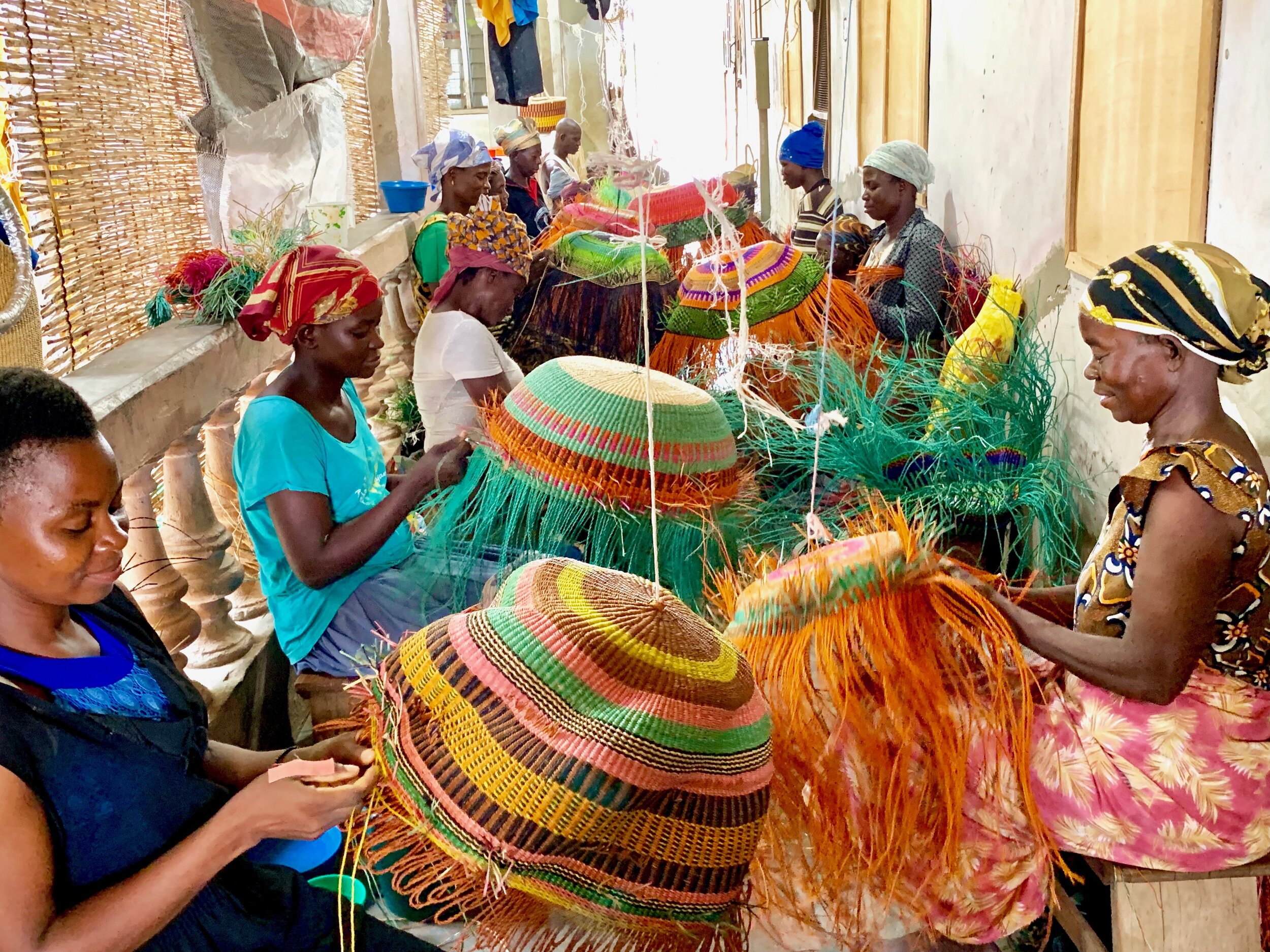
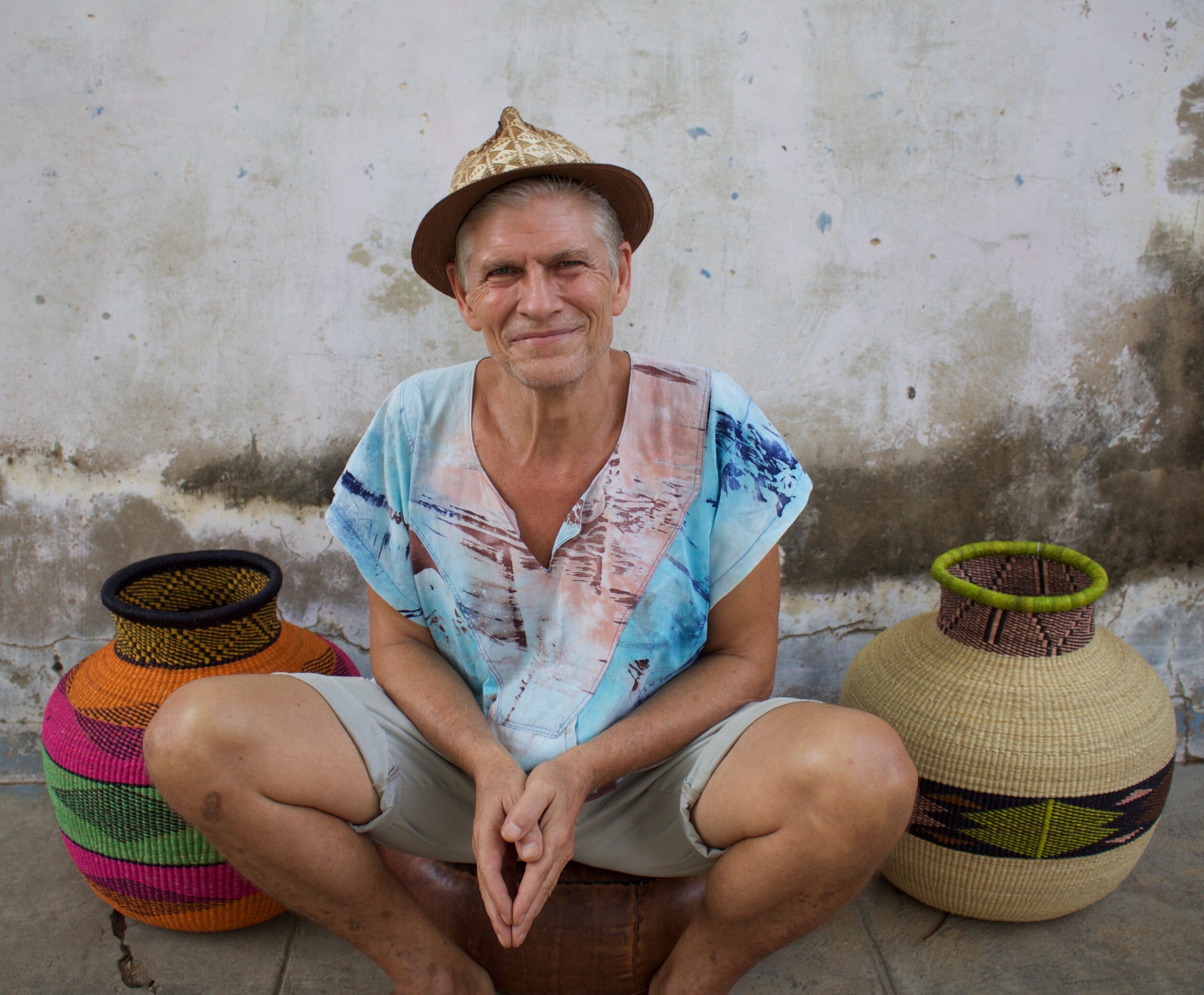
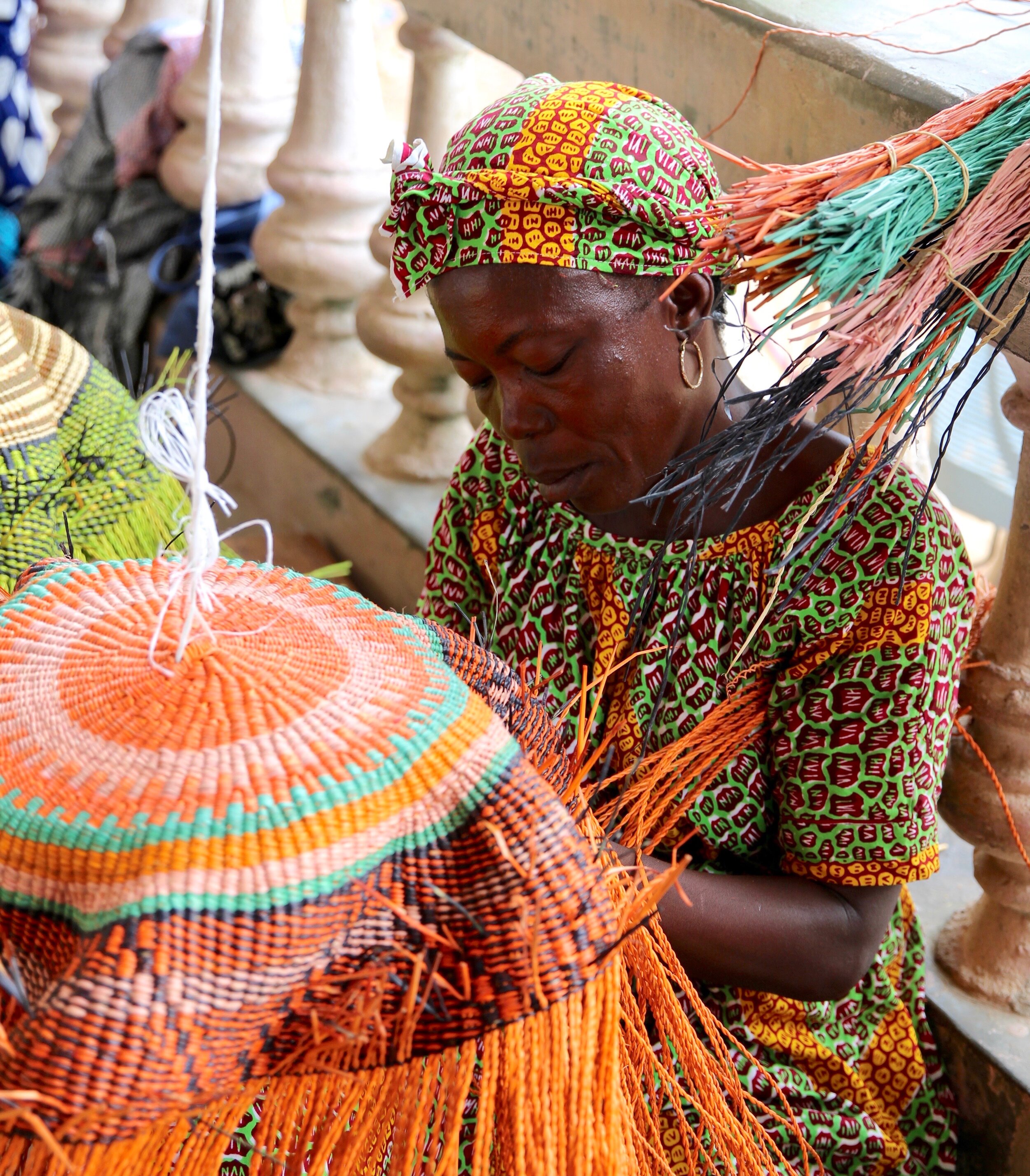
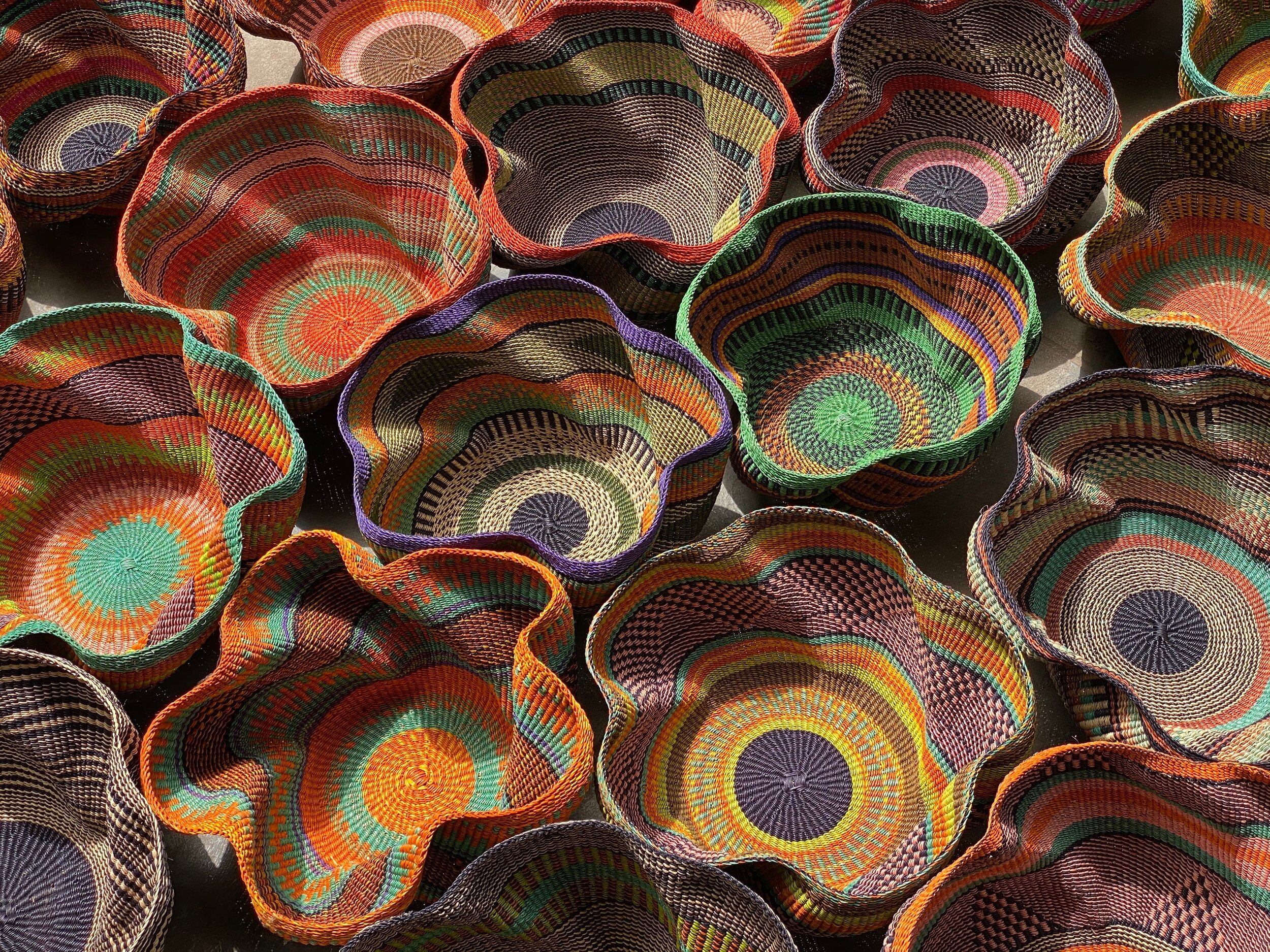
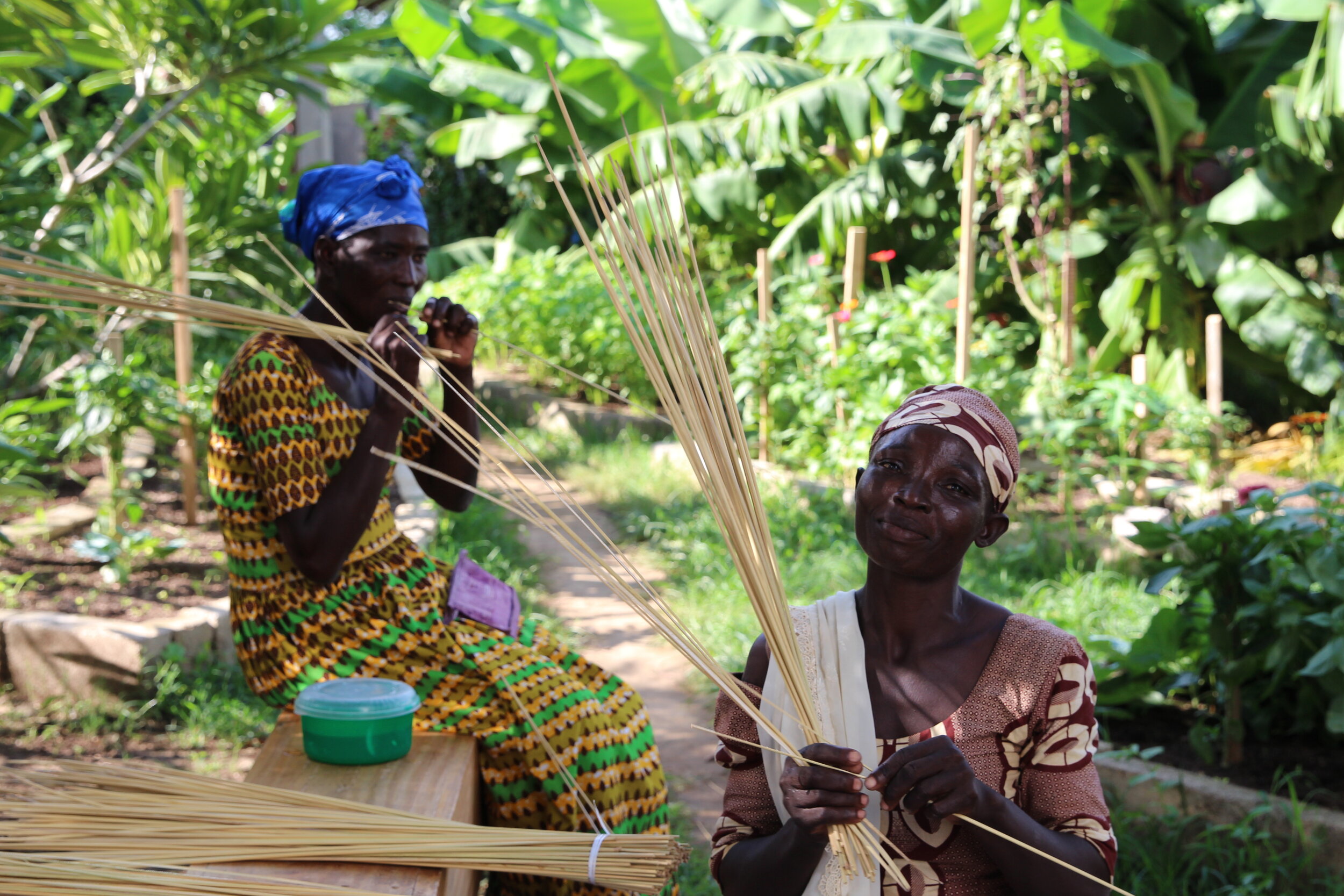
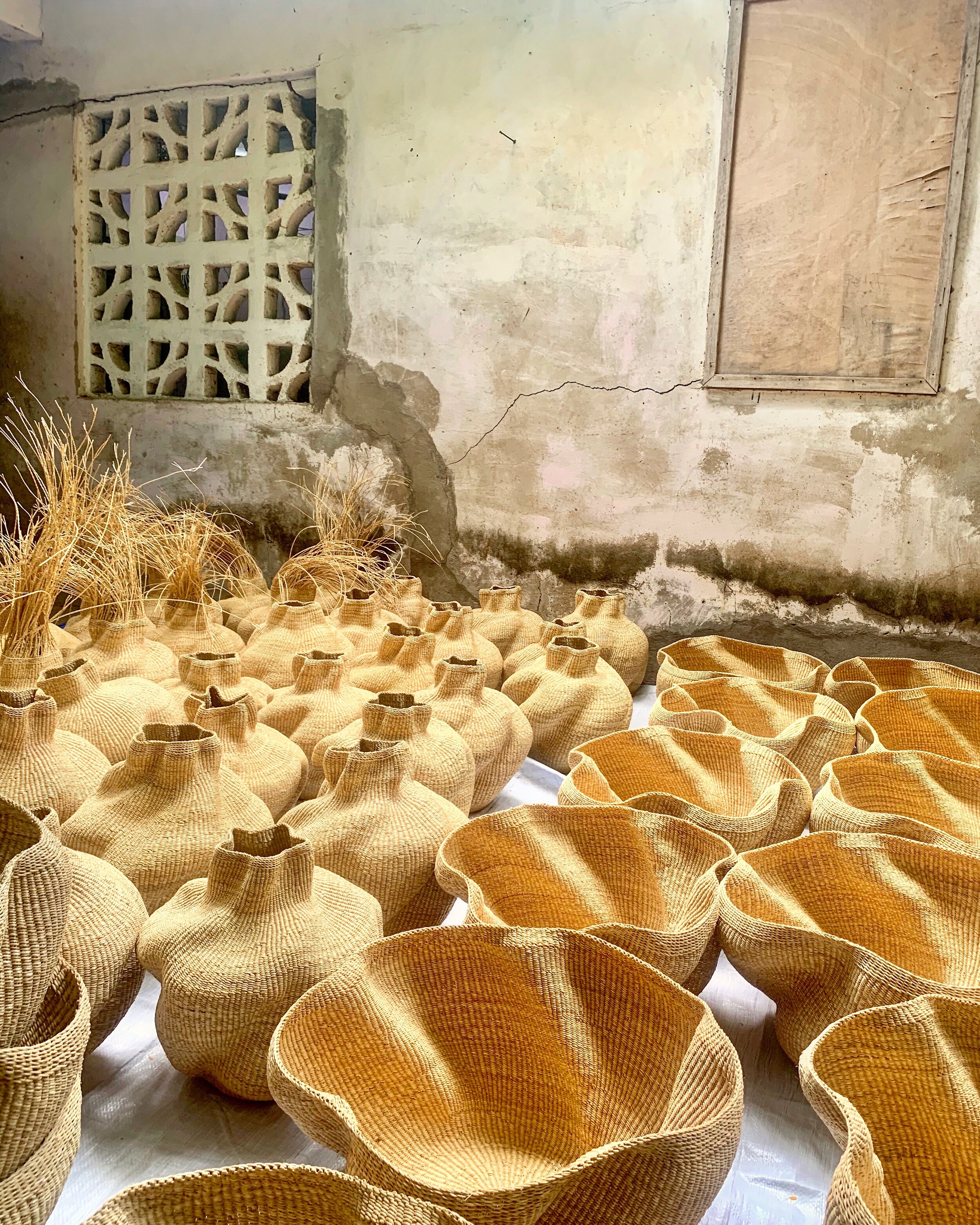
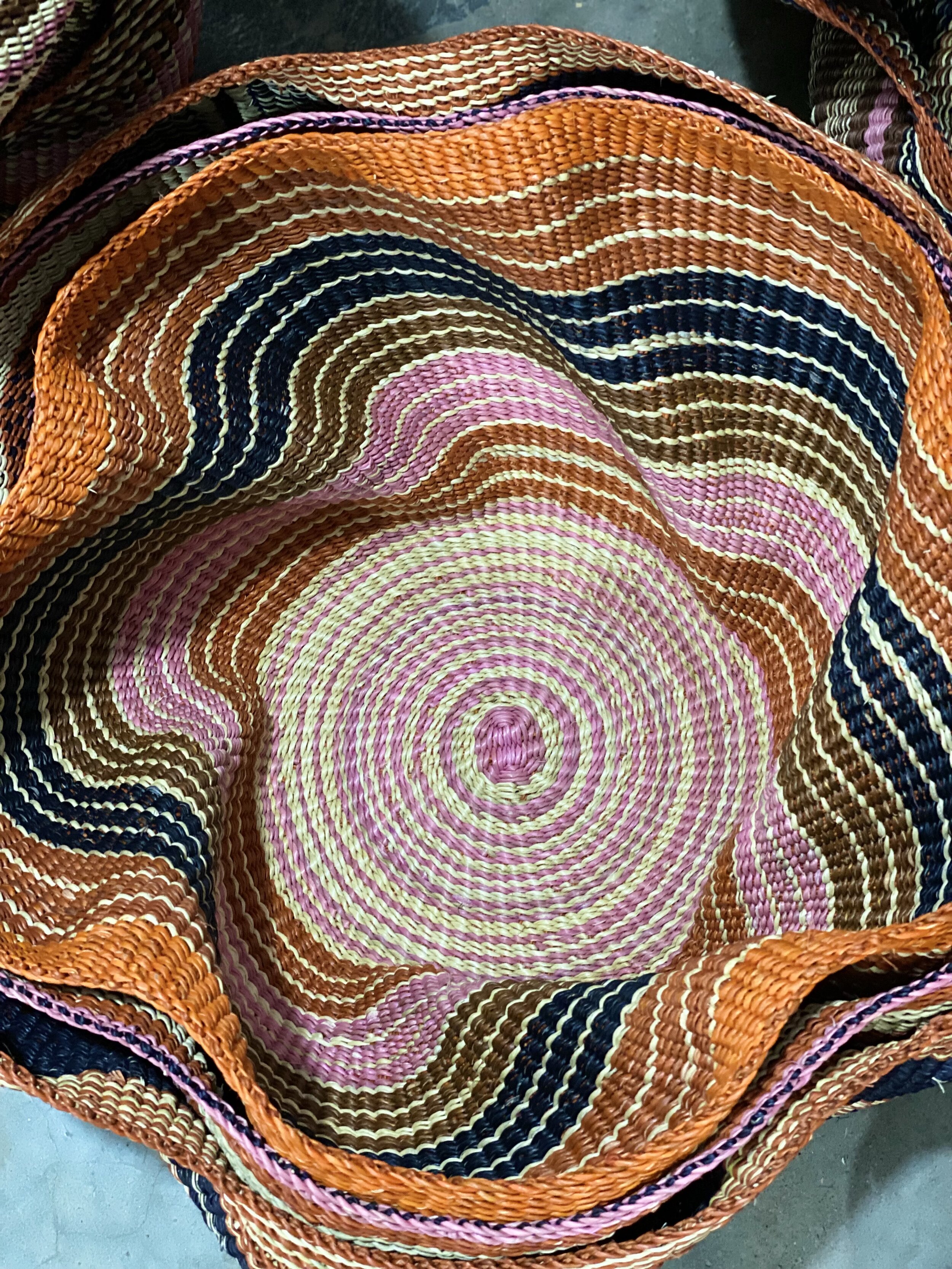
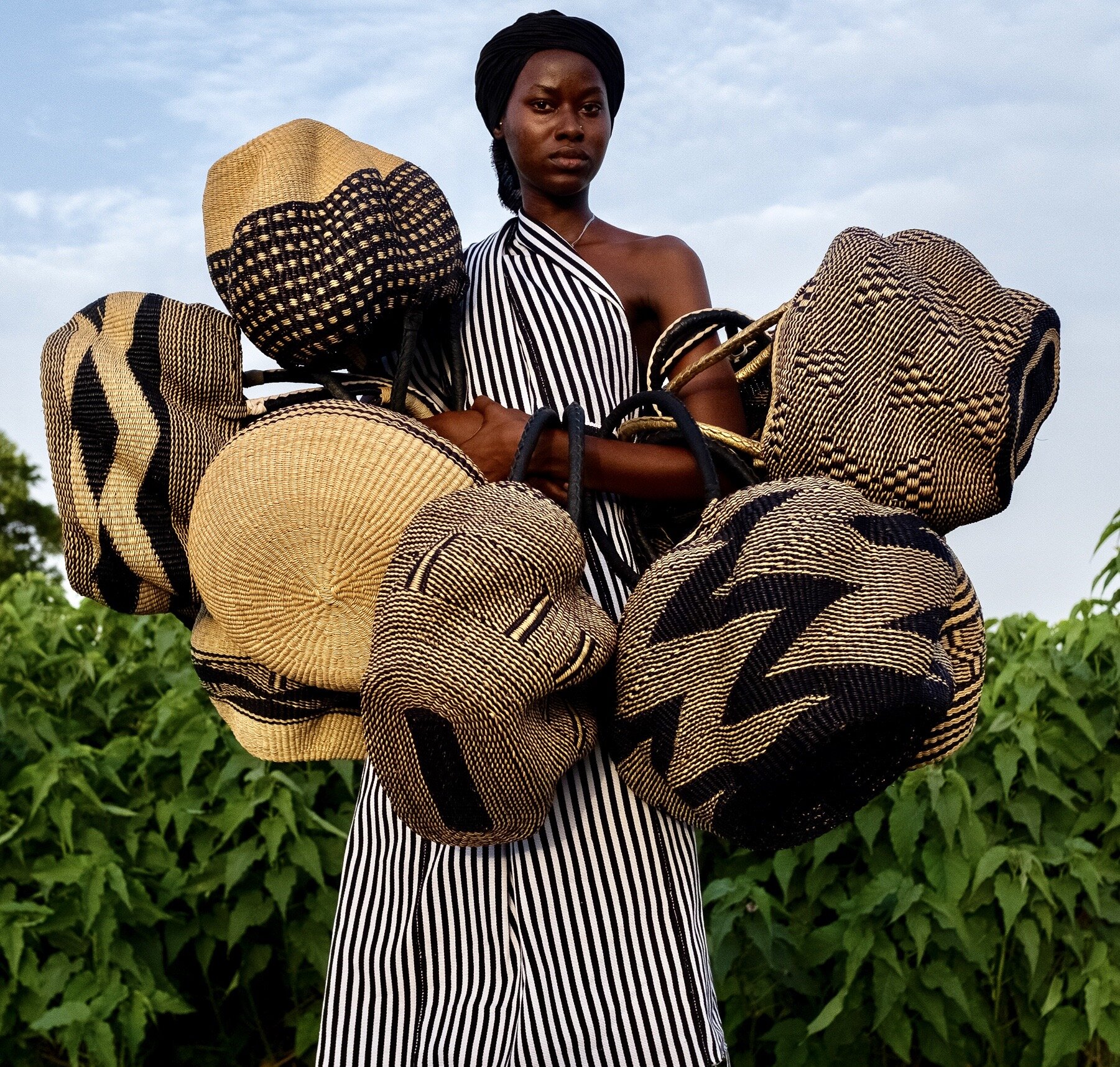
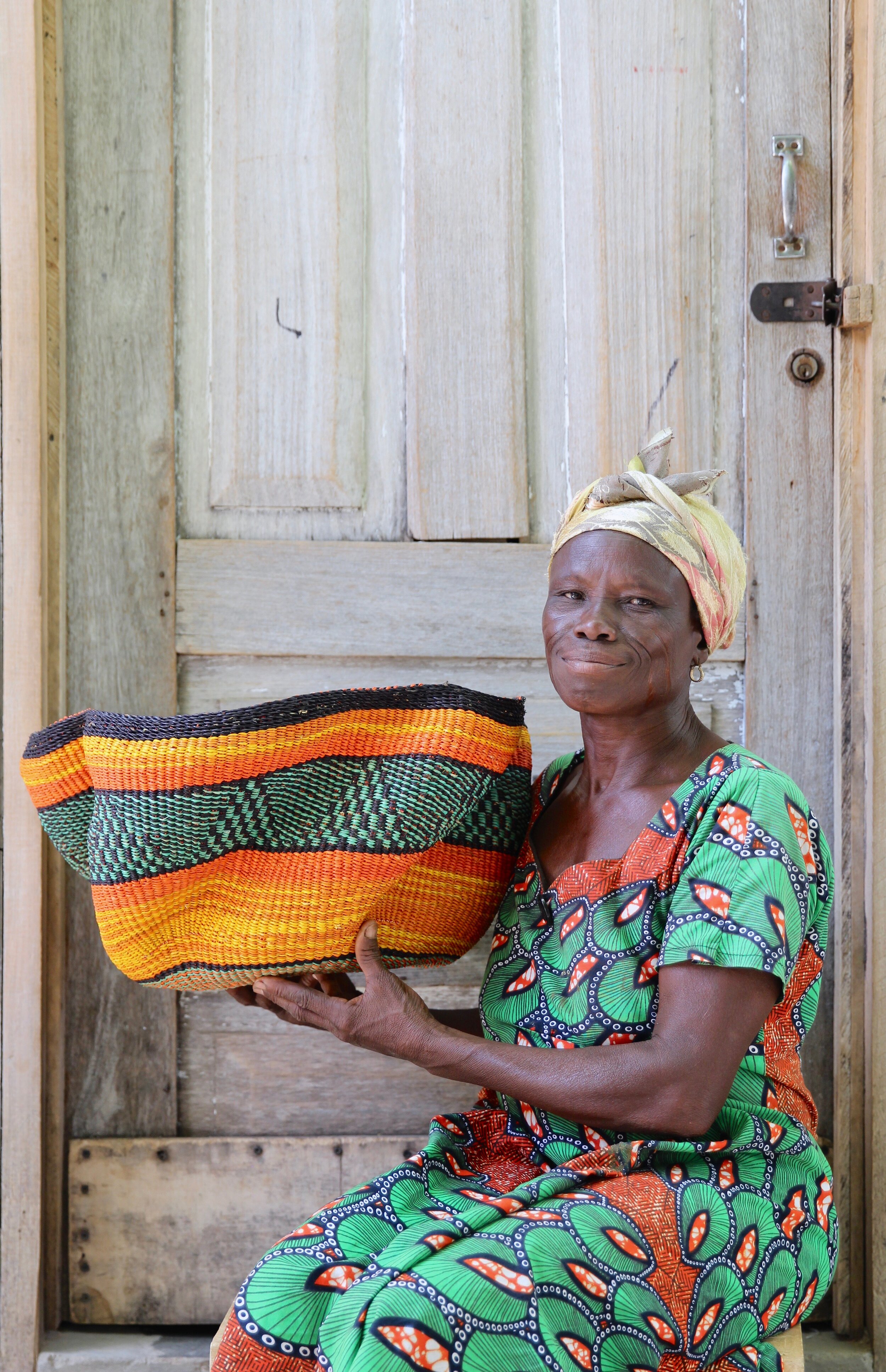

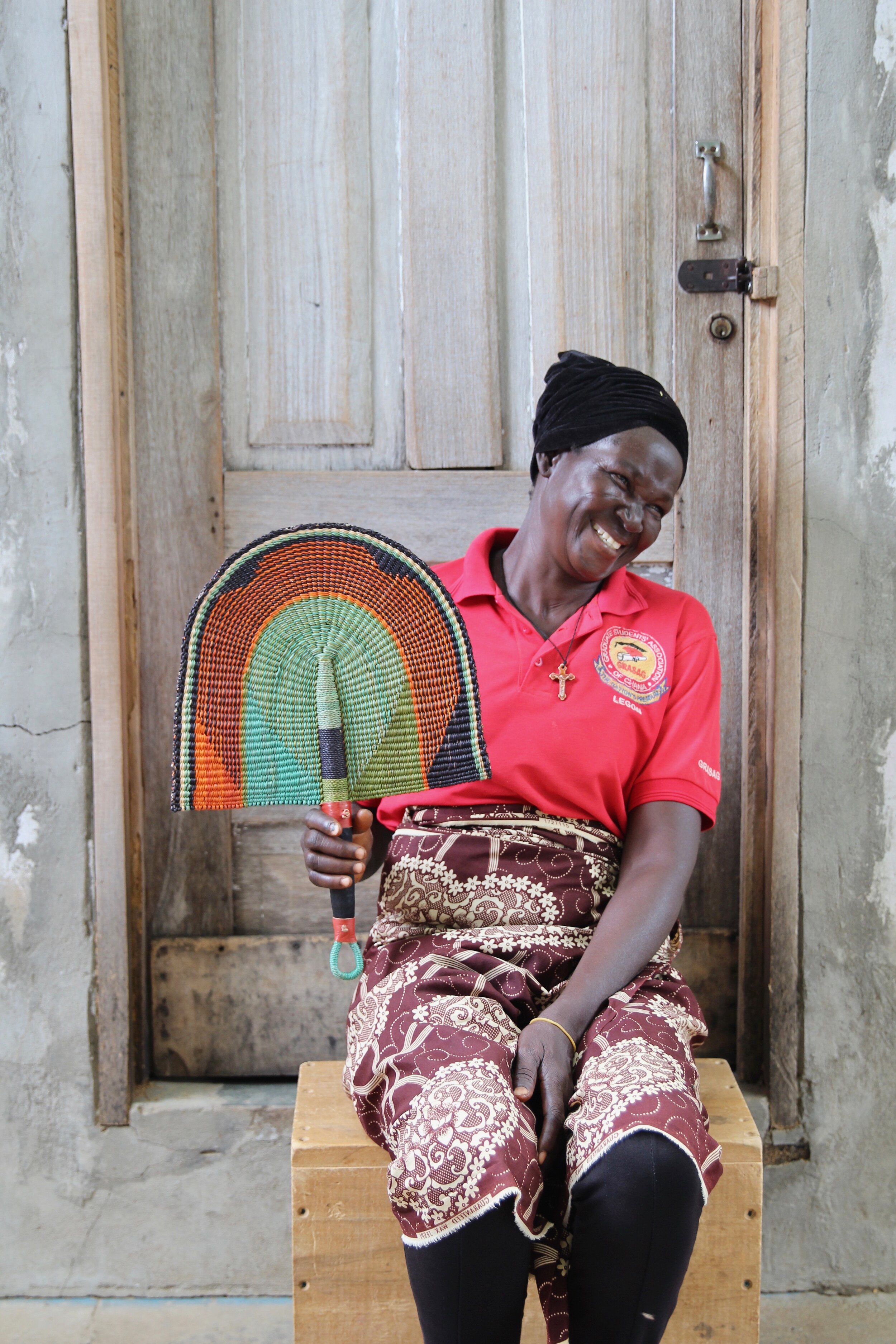
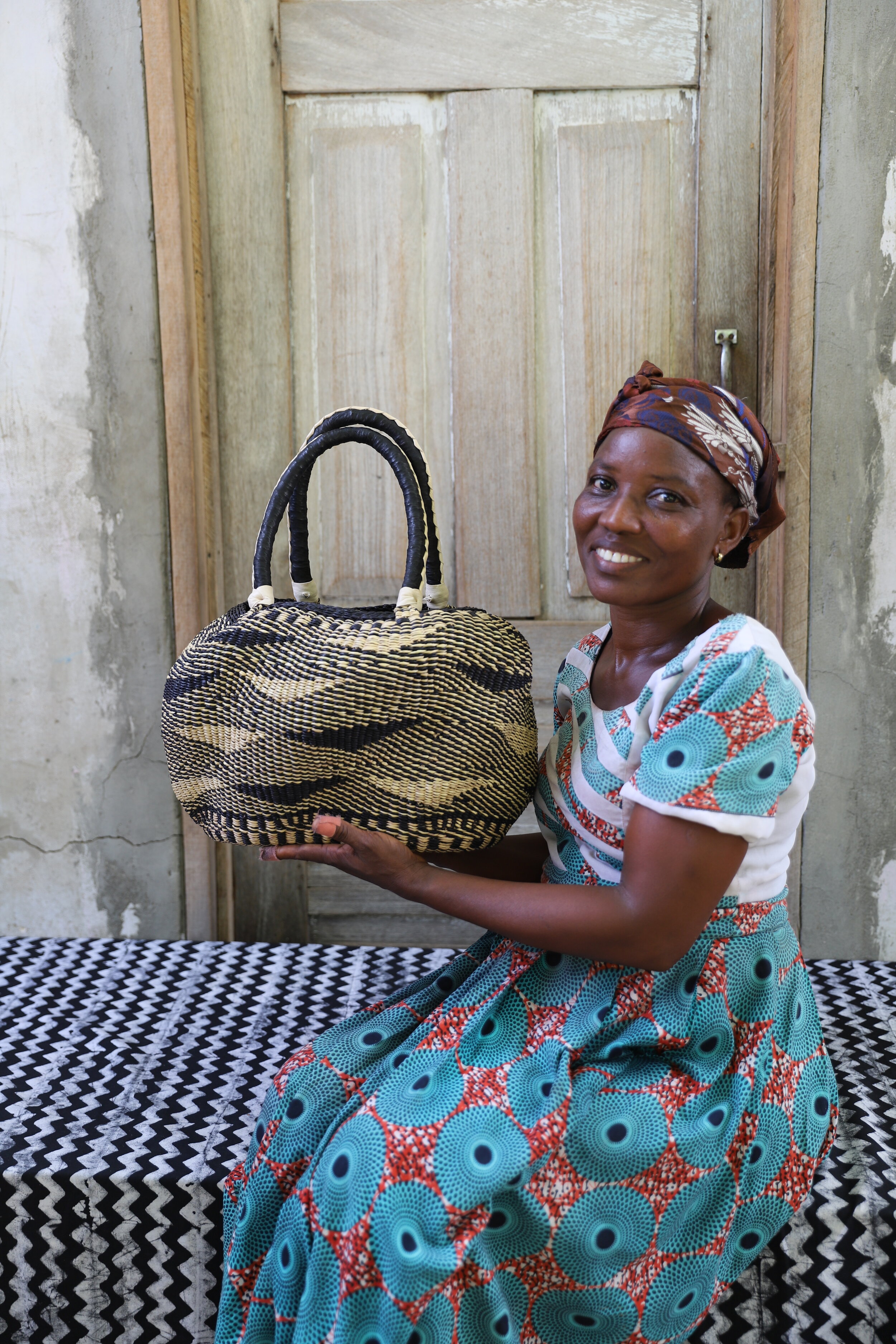
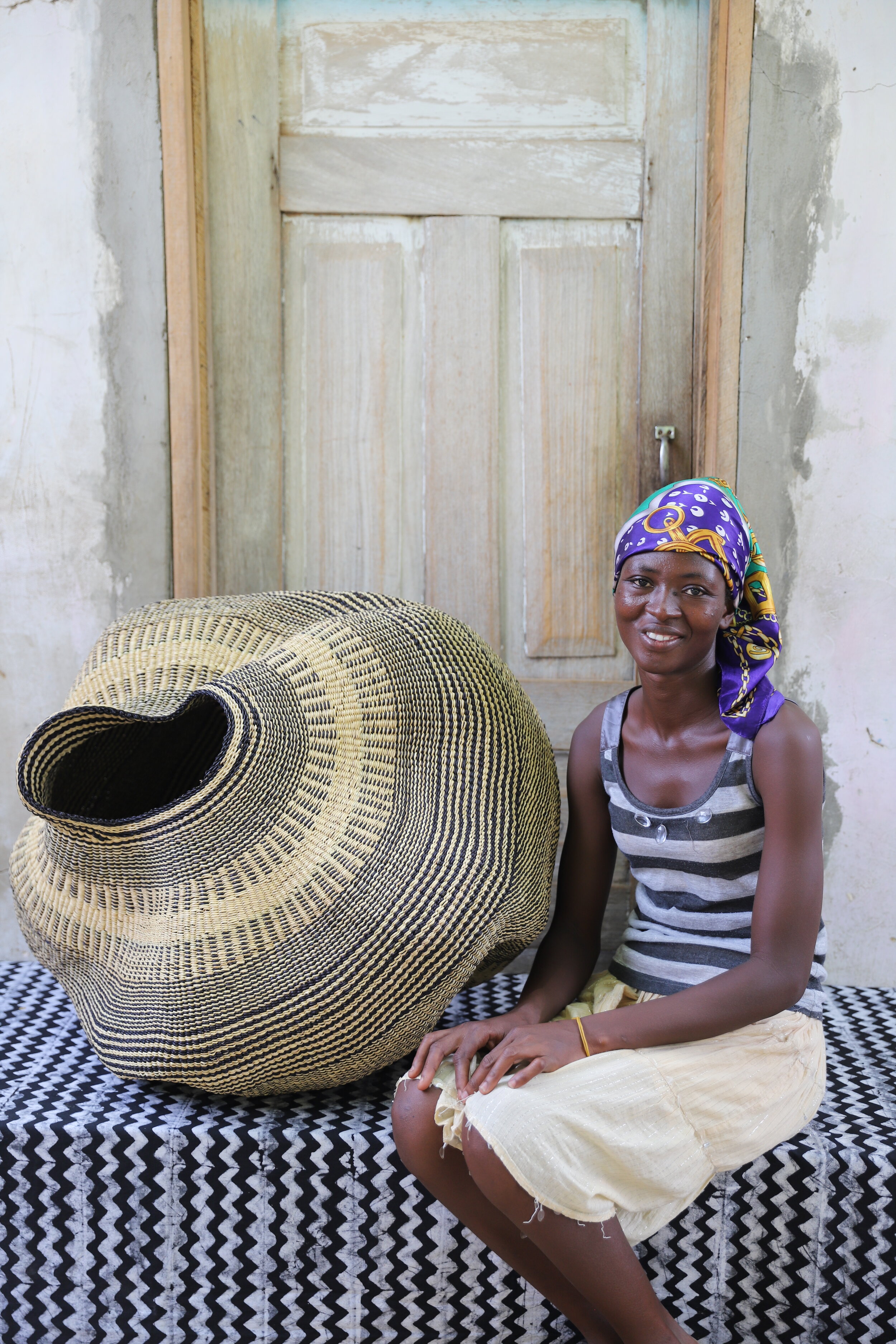
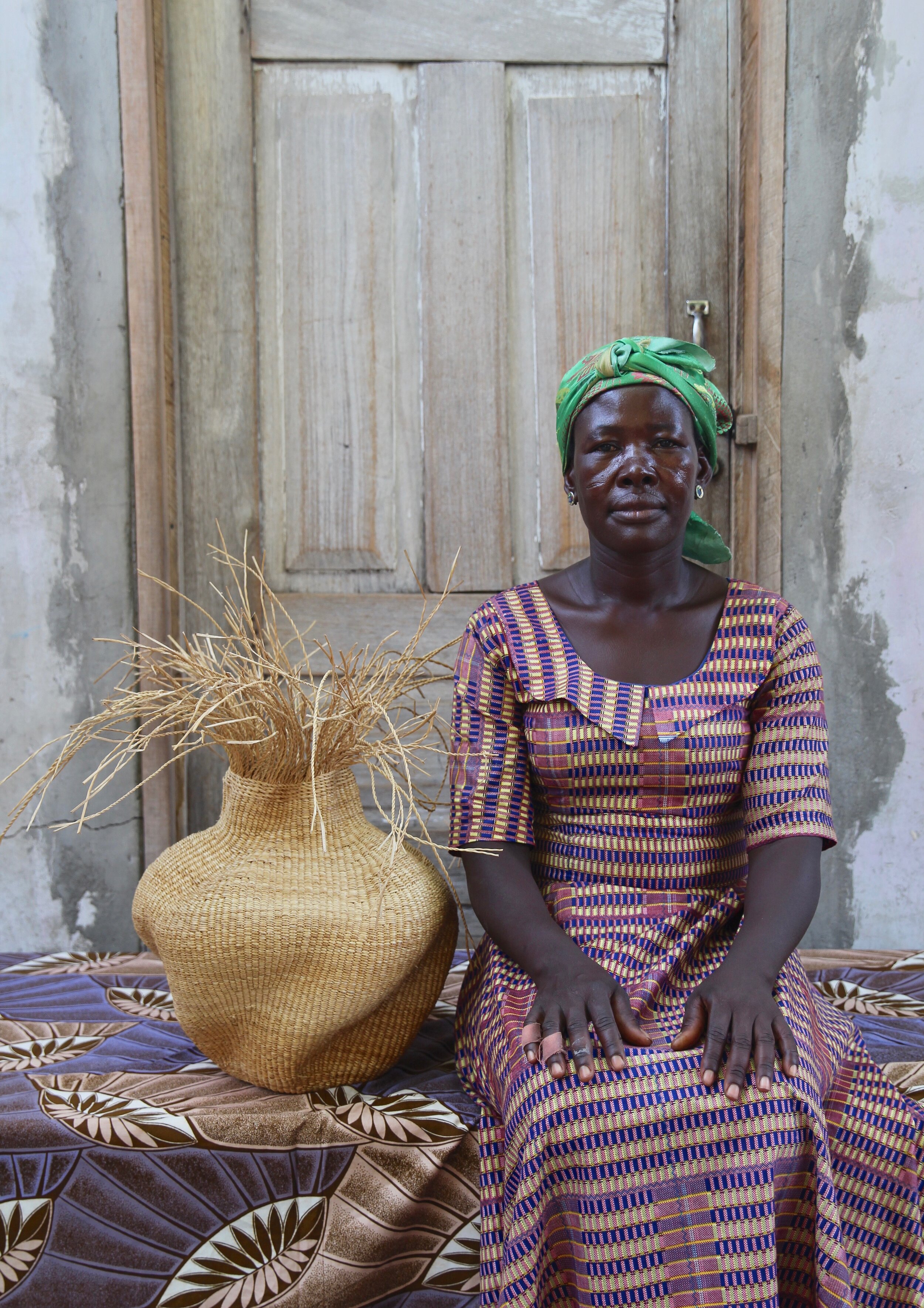
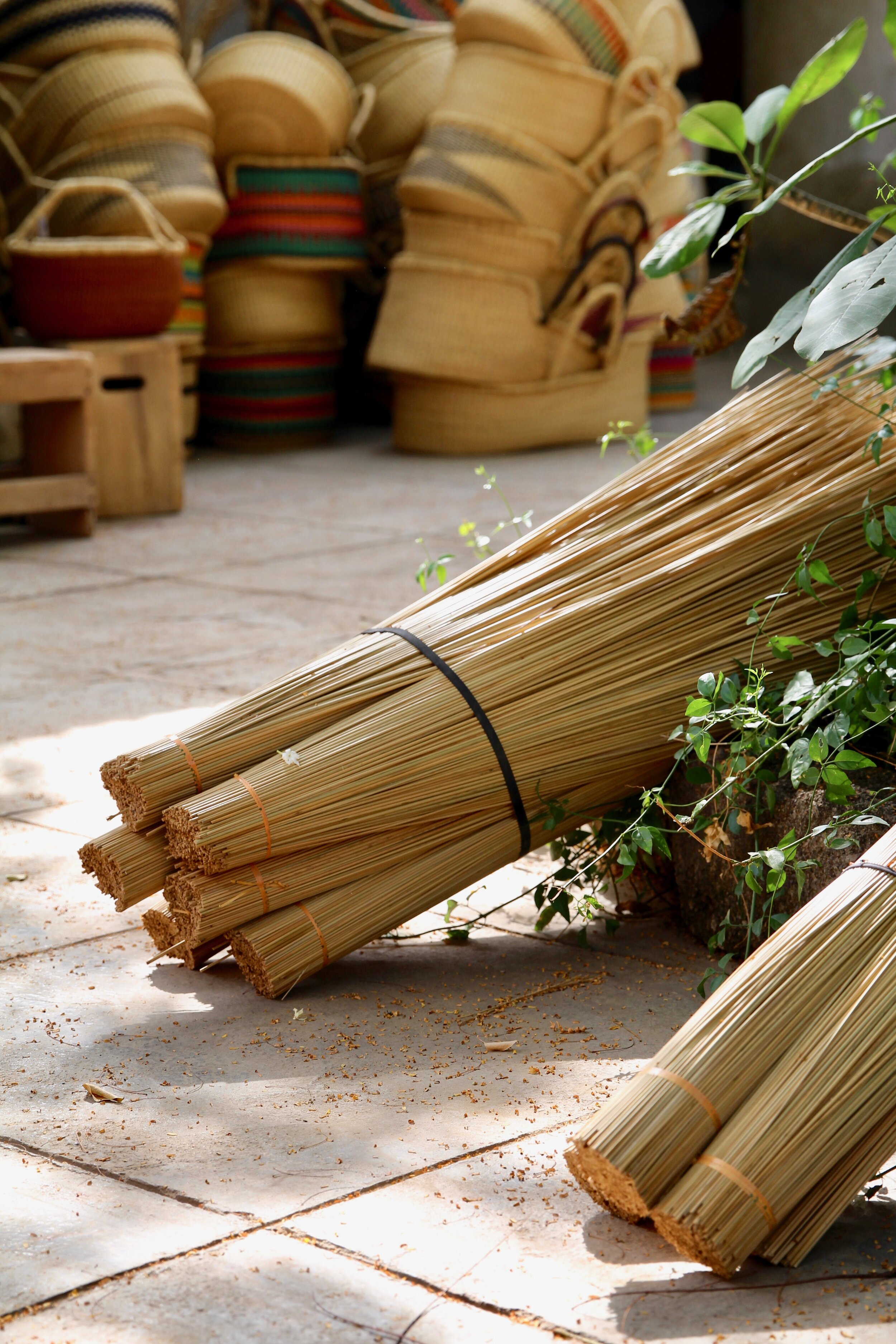
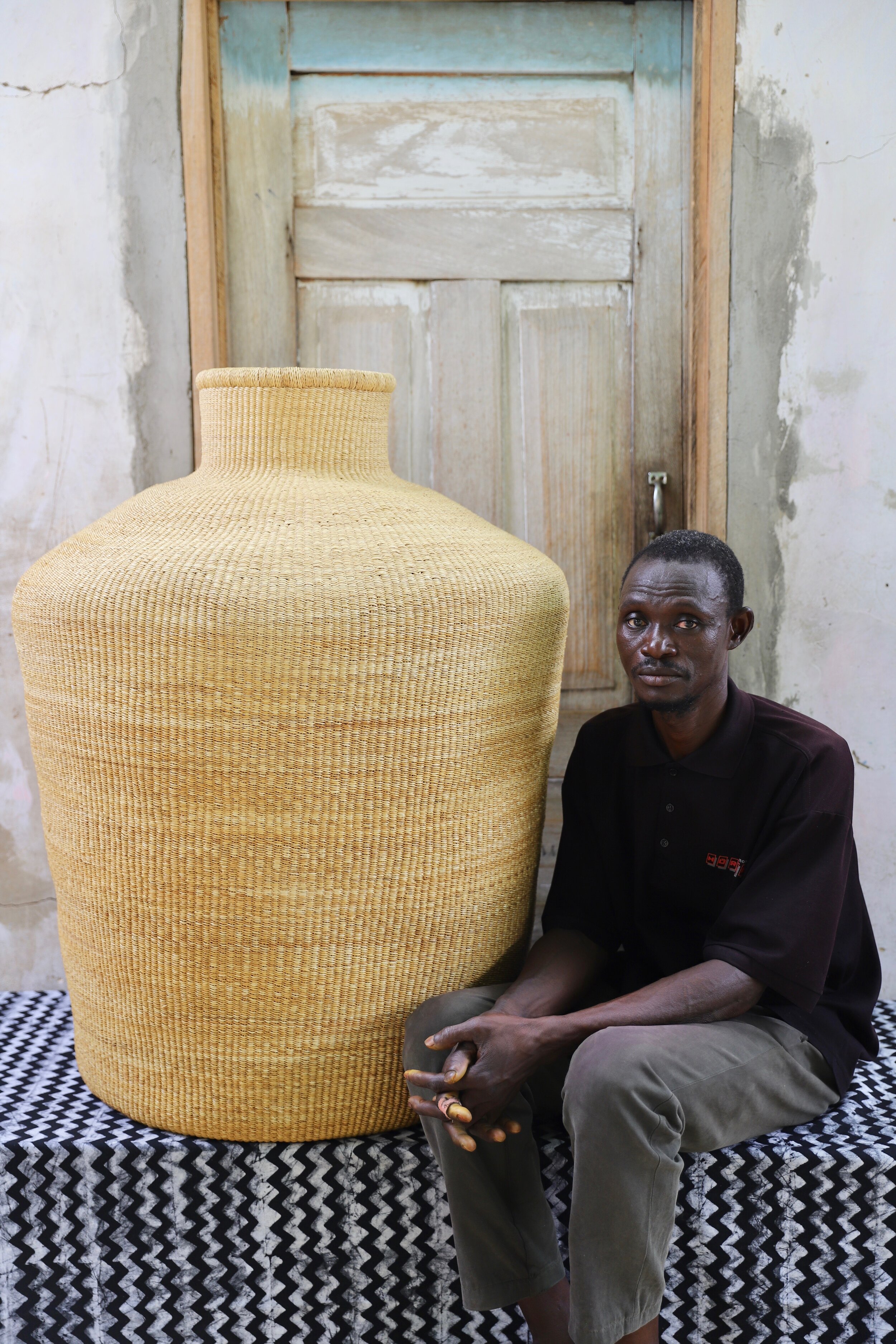
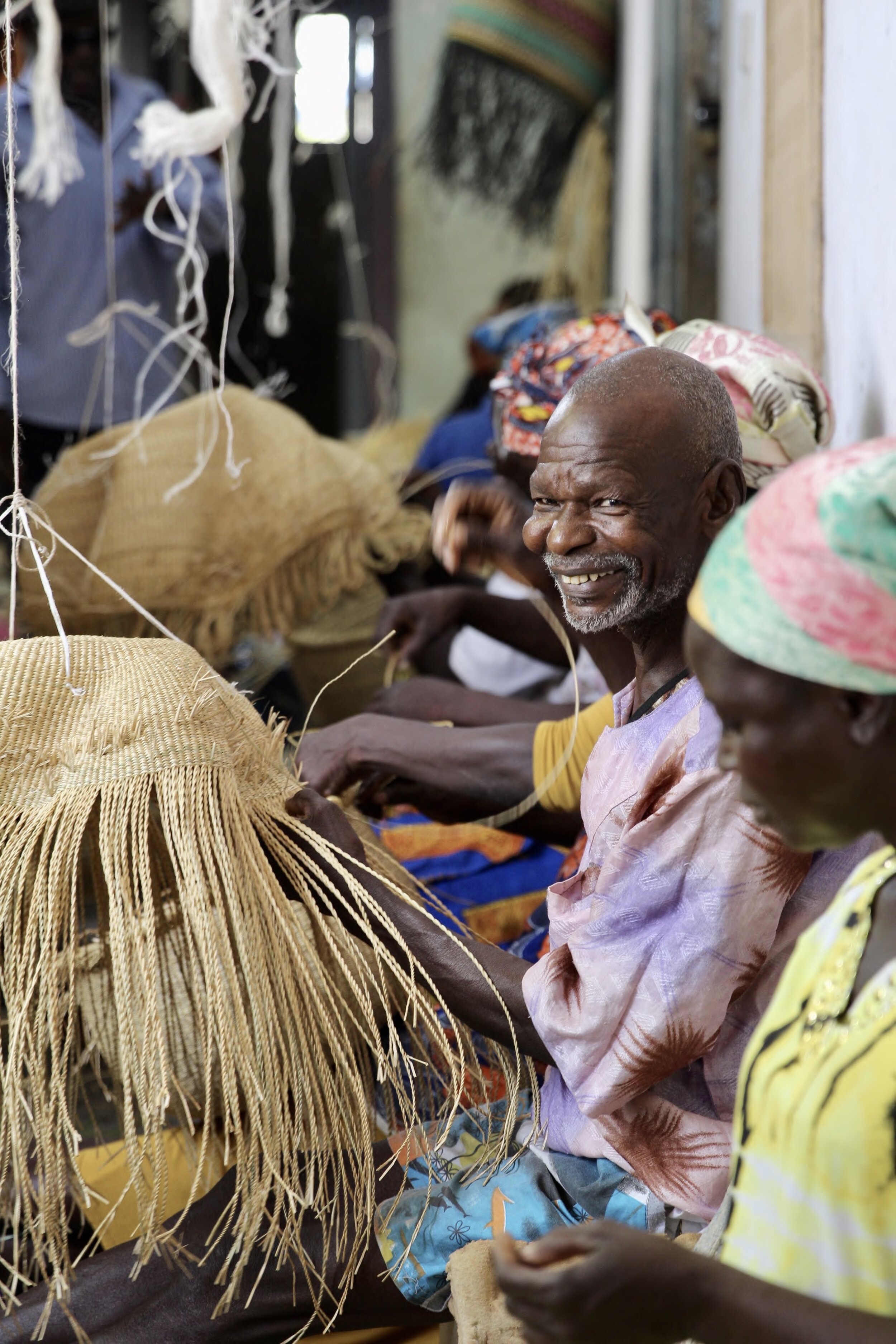
WHERE AND HOW DID THE BABA TREE BASKET CO. (BTBC) VISION BEGIN?
During my travels, to study cultural drumming with the Ga People of Accra, I fell in love with the country’s vibrant culture and incredible craftsmanship. Holding on to the vision to bring Ghana’s handmade products back to my homeland, Canada, Baba Tree Basket Co. was born.
Some 15 years later, we pride ourselves as the fairest trader in Bolgatanga, generating employment opportunities with competitive wages and creating a peerless collection of colourful, handwoven baskets that are native to the Upper East Region, representing the very best of Ghana’s style, creativity, hope and inspirations.
HOW DID YOUR FIRST MEETING WITH THE GURUNSI PEOPLE OF BOLGATANGA COME ABOUT?
I hired a bicycle and a local tout as a guide and off we went. It didn’t take long to discover the high quality standard of basket craftsmanship in this region. We rode to various villages in search for the artisans behind these incredibly beautiful and quality-made woven baskets.
BEFORE WE GET CARRIED AWAY IN THE WONDERFUL CRAFTSMANSHIP OF THESE BEAUTIFUL BASKETS, PLEASE TELL US THE SIGNIFICANCE OR SYMBOLISM OF THE BABA TREE TO THIS REGION AND WHY IT HAS INSPIRED THE BRAND NAME?
The baobab tree, (or 'baba tree' as sometimes referred to in the local vernacular), is a native to Africa and is also commonly known as the ‘tree of life’ because it provides an impressive amount of shade and also bares a super sweet and nutrient-dense fruit.
It is under the shade of a baobab tree where I made my first basket business, which inspired the brand name. The extraordinary Tua Tia baskets (pictured), are also a very significant design for our namesake, featuring straw that hangs like the leaves in shape of a baobab tree.
BOLGATANGA IS A REMOTE VILLAGE IN THE UPPER EAST REGION OF GHANA, FONDLY NAMED, (BY BETTINA DURING HER TIME THERE) AND NOW LOCALLY KNOWN AS THE ‘CITY OF BASKETS’. HOW LONG HAS BASKET WEAVING BEEN ASSOCIATED WITH THIS REGION?
Respected elder, master weaver and Chairman, Akabare Abentara, has been weaving with BTBC since the very beginning and remembers even as a young child, weaving their own sun hats to protect themselves while caring for livestock.
Traditional woven designs that originate from this region were made for general household items, ie. mats, bags, storage and cooking containers, including the vessel used during traditional liquor-making, to strain Pito, (local beer). These items were all woven with grass straw that grew in the Upper East Region of Ghana, however straw is now imported from the wetter southern region of Ghana where it grows best.
WHAT WAS THE MOST MEMORABLE EXPERIENCE ON VISITING THIS PART OF THE WORLD FOR THE FIRST TIME?
Well… I recall getting off the bus after a 15 hour journey, though Bolgatanga is not that remote; arriving with an immediate sense of Ghana’s population density being quite high; observing the different architecture, the heat, the parched landscape and the abundance of pigs!
PLEASE SHARE A LITTLE ABOUT LOCAL LIFE IN BOLGATANGA. HOW FAR IS THE NEAREST CITY?
Bolgatanga, (or Bolga) is the capital of the Bolgatanga Municipal District and Upper East Region of Ghana. The nearest city of Tamale is about 180 kilometres away. Local modes to get around are by motorcycles, bicycles, tro-tros, tuk-tuks (or candos), motokings, cars and the odd donkey.
Gurune is the local language of the Gurunsi People of northern Ghana, although English is also spoken.
Bolga experiences typical African Savanah weather, being hot and parched during the dry season in winter, and lush during the rain season in summer time. Sadly, the air is filthy and the surrounds strewn with plastic.
IT MUST BE A REWARDING PARTNERSHIP TO WORK WITH THE ARTISANS? WHAT’S THE ULTIMATE GOAL OR REWARD? HOW MANY ARTISANS ARE EMPLOYED?
BTBC has been preserving the culture of baskets and the Gurunsi community in Bolgatanga for the last 16 years, employing 600 people across basket weaving, production and building the new Baba Tree compound. We continue this ongoing commitment, collaborating with artisans to deliver a progressive creation of job sustainability and income opportunities via fair and meaningful work.
By celebrating their incredible craftsmanship and promoting their wares via a global marketplace, has made a significant social impact for the artisan community and for anyone associated with BTBC, when their head hits the pillow at night, they should sleep soundly knowing that by doing their best they shouldn’t have a money problem.
ARE ALL OF THE BASKETS HAND-CRAFTED USING NATURAL FIBRES? WHAT ARE THEY MADE FROM AND WHERE ARE THESE CROPS GROWN AND HARVESTED?
Durable Bolga baskets are hand-woven and stand the test of time. Our baskets are made from hollow stalks of dried elephant grass (veta vera) that are split and twisted before the weaving process even begins.
First, the weaver splits the grass or straw into two long strands. Then, by rolling these strands across an old flip-flop strapped to a thigh, the weaver twists these two strands together. This makes the grass stronger and more pliable for weaving. The grass is often hand-dyed to create vibrant colours and intricate patterns.
Lastly, the many fibres of grass that fan out from the finished weave are carefully trimmed and tucked away to reveal each beautiful basket.
Although elephant grass is grown primarily in southern Ghana, weavers in the northern region of Bolgatanga excel at transforming the tough grass fibre into the iconic baskets.
THE OVER-SIZED BABA TREE BASKETS ARE A SLOW MADE WONDER IN OUR SHIBUI EYES. IS THIS WEAVING STYLE A DESIGN BELONGING TO THE GURUNSI PEOPLE SPECIFICALLY? HOW LONG CAN IT TAKE TO WEAVE ONE OF THESE LARGER STYLES?
We believe basketry is art. Each piece is made directly by the hands of the artisans. The master weavers, being women, men, young or old, are born with an innate talent and desire to create! We celebrate the unique differences in each and every piece they create. Each curve is their handprint or signature style expertly handcrafted into each piece.
The time it takes to weave a basket really depends on the pace and skill of the artisan, but a basket can typically take 2 to 4.5 weeks to complete.
The wonderful ‘Pakurigo Wave’ basket (pictured), has become our signature design and is named after the two artisans who created this wave technique, which came about as an interwoven project by the incredible talents of Palash Singh (Indian) and our very own master weaver, Mr John Akurigo, while on a field trip to India. In 2013, twenty of our weavers were invited by the Indian Government, to visit and collaborate with local weavers at The National Institute of Design in Ahmedabad, India. Our African artisans taught Indian artisans their traditional weaving techniques and this joint-project established a growth in fair trade employment in India ongoing.
WITHOUT WORLD TOURISM WHAT HAS BEEN THE MOST VALUABLE INSIGHT THAT BTBC HAS WITNESSED ABOUT THIS REMOTE COMMUNITY? HOW DO LOCALS REMAIN RESILIENT DURING CHALLENGING TIMES?
Business has been good and we have pretty much carried on during the pandemic as we did before with the exception of going into voluntary lockdown for a few months when Covid-19 first struck in 2020. During that time we invested USD35K to help support our weavers.
WHAT DO YOU BELIEVE IS MOST IMPORTANT TO HELP PRESERVE CULTURES AROUND THE WORLD?
We believe that sustaining and preserving the traditional craftsmanship and rich cultural heritage of basket weaving of the Gurunsi artisans, while collaborating with them, is the most important thing we can do. For over 16 years we have been providing sustainable employment for more than 600 artisans. The more baskets we sell, the more our artisans and their community will benefit.
SHIBUI & Co. would like to thank Baba Tree Baskets Co. and their artisan partners for sharing their beautiful story with us.
babatree.com | INSTAGRAM | FACEBOOK | YOUTUBE


